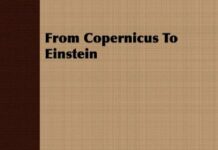
Ebook Info
- Published: 2012
- Number of pages: 317 pages
- Format: PDF
- File Size: 10.09 MB
- Authors: Hans Reichenbach
Description
Physics concerns direct analysis of the physical world, while philosophy analyzes knowledge about the physical world. This volume combines both disciplines for a philosophical interpretation of quantum physics — an interpretation free from the imprecision of metaphysics, offering a view of the atomic world and its quantum mechanical results as concrete as the visible everyday world.Written by an internationally renowned philosopher who specialized in symbolic logic and the theory of relativity, this approach consists of three parts. The first section, which requires no background in math or physics, reviews the basics of quantum mechanics, outlining their philosophical interpretation and summarizing their results. The second part, which presupposes a knowledge of calculus, outlines the mathematical methods of quantum mechanics; and the third part blends the philosophical ideas of the first part and the mathematical formulations of the second part to develop a variety of interpretations of quantum mechanics. The author presents in-depth discussions of each interpretation, constructing a conclusion in terms of three-valued logic that offers readers a satisfactory logical form of quantum mechanics.Focusing on clarification of concepts rather than developing problem-solving skills, this volume will prove enlightening to students of mathematics, physics, and the other sciences.
User’s Reviews
Reviews from Amazon users which were colected at the time this book was published on the website:
⭐Another in a series of books by Reichenbach recently issued. In the earliest one he explores the blowback from relativity on epistemology. In this one he lays out various “interpretations” of quantum mechanics. As usual, he does a wonderful job of laying out the possible ways of understanding the implications of quantum mechanical measurements. He goes into much more detail about the logical entailments of various interpretations than do more contemporary treatments. He wrote this in 1944 so Neither Bell’s Inequality experiments nor Everett’s “many worlds hypothesis” were available and so he can focus better on the detailed implications of what was around at the time. This included the EPR debate (Einstein, Podolsky, Rosen with Bohr and Schrodinger). Interestingly, Reichenbach concludes that the intractability of the debate was the result of applying a two-valued logic to the problem while a 3-valued logic (which he lays out) was more appropriate to qm problems. Using the 3 valued approach, Reichenbach concludes that Einstein, Podolsky, and Rosen were wrong because it is not possible to have a complete (and contradiction free) full description of the universe in any system.Alas there is a lot of math in this book. Much of two large sections are filled with equations and frankly I will admit they are mostly beyond me, but even those that aren’t are not worth the time it would take me to understand them. There is also a considerable amount of first order logic, but I have more experience with that, and (lucky for me) that is where most of the philosophical “interpretation” work seems to be done. But you can over look the math and the formal logic expressions and still get a lot of detail concerning the range of interpretations available in 1944 and still debated today. Worth while if the history or deeper mysteries of QM are of any interest.
⭐Okay book
⭐Great book arrived in perfect timing
⭐Great book. The quality and delivery time were as suggested. There is no complain.
⭐Atendeu a minhas expectativas. Bem impresso e chegou no prazo informado.Será muito util nas minhas atividades pessoais e recomendo.
⭐Reichenbach’s book is a classic text, the first (I think) to focus on the philosophical aspects of quantum mechanics. Since it was written around the time that quantum mechanics was born, it does not deal with modern discussion on the subject. Reichenbach does solid work, however, and this is a valuable resource for anyone interested in these issues.The book has three sections. The first is an overview of his conclusions and the implications of quantum mechanics. This section is lucid and relatively non-technical, it should be intelligible to anyone. The second section is an in-depth technical introduction to the formalism of quantum mechanics. Anyone, if determined enough, could get through this part, though it’s pretty hairy going for those without a formal background in physics or mathematics. In the last section, he reaches his conclusions and introduces a system of logic to deal with the truth value of propositions about quantum mechanics.
⭐The best book explaining the fundamentals quantum mechanics specially uncertainty principle. Focusing on the way the uncertainty principle explanation, is extremely informative and in the process of doing so it explains why the quantum mechanics is “uncertain” in its nature and why its impossible to obtain the status of the system from the results of the observations.
Keywords
Free Download Philosophic Foundations of Quantum Mechanics (Dover Books on Physics) in PDF format
Philosophic Foundations of Quantum Mechanics (Dover Books on Physics) PDF Free Download
Download Philosophic Foundations of Quantum Mechanics (Dover Books on Physics) 2012 PDF Free
Philosophic Foundations of Quantum Mechanics (Dover Books on Physics) 2012 PDF Free Download
Download Philosophic Foundations of Quantum Mechanics (Dover Books on Physics) PDF
Free Download Ebook Philosophic Foundations of Quantum Mechanics (Dover Books on Physics)

